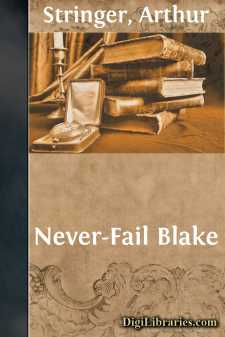Categories
- Antiques & Collectibles 13
- Architecture 36
- Art 48
- Bibles 22
- Biography & Autobiography 813
- Body, Mind & Spirit 142
- Business & Economics 28
- Children's Books 16
- Children's Fiction 13
- Computers 4
- Cooking 94
- Crafts & Hobbies 4
- Drama 346
- Education 46
- Family & Relationships 57
- Fiction 11829
- Games 19
- Gardening 17
- Health & Fitness 34
- History 1377
- House & Home 1
- Humor 147
- Juvenile Fiction 1873
- Juvenile Nonfiction 202
- Language Arts & Disciplines 88
- Law 16
- Literary Collections 686
- Literary Criticism 179
- Mathematics 13
- Medical 41
- Music 40
- Nature 179
- Non-Classifiable 1768
- Performing Arts 7
- Periodicals 1453
- Philosophy 64
- Photography 2
- Poetry 896
- Political Science 203
- Psychology 42
- Reference 154
- Religion 513
- Science 126
- Self-Help 84
- Social Science 81
- Sports & Recreation 34
- Study Aids 3
- Technology & Engineering 59
- Transportation 23
- Travel 463
- True Crime 29
The Prairie Child
by: Arthur Stringer
Categories:
Description:
Excerpt
Friday the Eighth of March
“But the thing I can’t understand, Dinky-Dunk, is how you ever could.”
“Could what?” my husband asked in an aerated tone of voice.
I had to gulp before I got it out.
“Could kiss a woman like that,” I managed to explain.
Duncan Argyll McKail looked at me with a much cooler eye than I had expected. If he saw my shudder, he paid no attention to it.
“On much the same principle,” he quietly announced, “that the Chinese eat birds’ nests.”
“Just what do you mean by that?” I demanded, resenting the fact that he could stand as silent as a December beehive before my morosely questioning eyes.
“I mean that, being married, you’ve run away with the idea that all birds’ nests are made out of mud and straw, with possibly a garnish of horse hairs. But if you’d really examine these edible nests you’d find they were made of surprisingly appealing and succulent tendrils. They’re quite appetizing, you may be sure, or they’d never be eaten!”
I stood turning this over, exactly as I’ve seen my Dinkie turn over an unexpectedly rancid nut.
“Aren’t you, under the circumstances, being rather stupidly clever?” I finally asked.
“When I suppose you’d rather see me cleverly stupid?” he found the heart to suggest.
“But that woman, to me, always looked like a frog,” I protested, doing my best to duplicate his pose of impersonality.
“Well, she doesn’t make love like a frog,” he retorted with his first betraying touch of anger. I turned to the window, to the end that my Eliza-Crossing-the-Ice look wouldn’t be entirely at his mercy. A belated March blizzard was slapping at the panes and cuffing the house-corners. At the end of a long winter, I knew, tempers were apt to be short. But this was much more than a matter of barometers. The man I’d wanted to live with like a second “Suzanne de Sirmont” in Daudet’s Happiness had not only cut me to the quick but was rubbing salt in the wound. He had said what he did with deliberate intent to hurt me, for it was only too obvious that he was tired of being on the defensive. And it did hurt. It couldn’t help hurting. For the man, after all, was my husband. He was the husband to whom I’d given up the best part of my life, the two-legged basket into which I’d packed all my eggs of allegiance. And now he was scrambling that precious collection for a cheap omelette of amorous adventure. He was my husband, I kept reminding myself. But that didn’t cover the entire case. No husband whose heart is right stands holding another woman’s shoulder and tries to read her shoe-numbers through her ardently upturned eyes. It shows the wind is not blowing right in the home circle. It shows a rent in the dyke, a flaw in the blade, a breach in the fortress-wall of faith. For marriage, to the wife who is a mother as well, impresses me as rather like the spliced arrow of the Esquimos: it is cemented together with blood. It is a solemn matter. And for the sake of mutter-schutz, if for nothing else, it must be kept that way....



